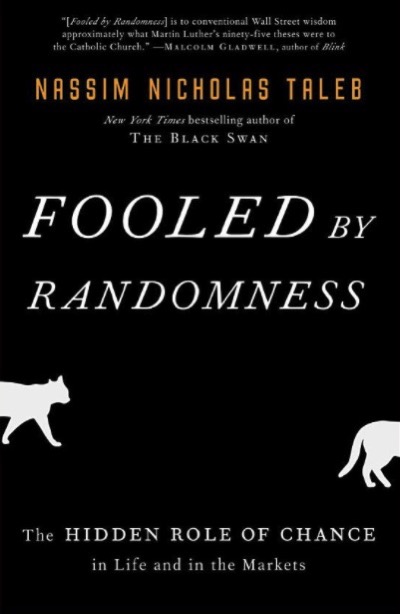Note: From time to time I share notes about the books I’ve been reading, or have revisited after many years. For more such posts, see the Book Notes category

Fooled by Randomness: The Hidden Role of Chance in Life and in the Markets, by Nassim Nicholas Taleb
Published: 2001
ISBN: 1400067936
Amazon link
My rating: 7/10
The book in three sentences:
The world is mostly random and non-linear, but we are hard-wired to construct narratives that make sense of it all. What we attribute to individuals’ and organizations’ skill is often mostly due to luck. We trick ourselves into thinking that what seems unlikely to happen — like the appearance of a black swan — will never actually take place.
My notes:
We are still very close to our ancestors who roamed the savannah. The formation of our beliefs is fraught with superstitions — even today (I might say, especially today). Just as one day some primitive tribesman scratched his nose, saw rain falling, and developed an elaborate method of scratching his note to bring on the much-needed rain, we link economic prosperity to some rate cut by the Federal Reserve Board, or the success of a company with appointment of the new president “at the helm…”
This confusion strikes people of different persuasions; the literature professor invests a deep meaning into a mere coincidental occurrence of word patterns, while the economist proudly detects “regularities” and “anomalies” in data that are plain random.
At the cost of appearing biased, I have to say that the literary mind can be intentionally prone to the confusion between noise and meaning, that is, between a randomly constructed arrangement and a precisely intended message.